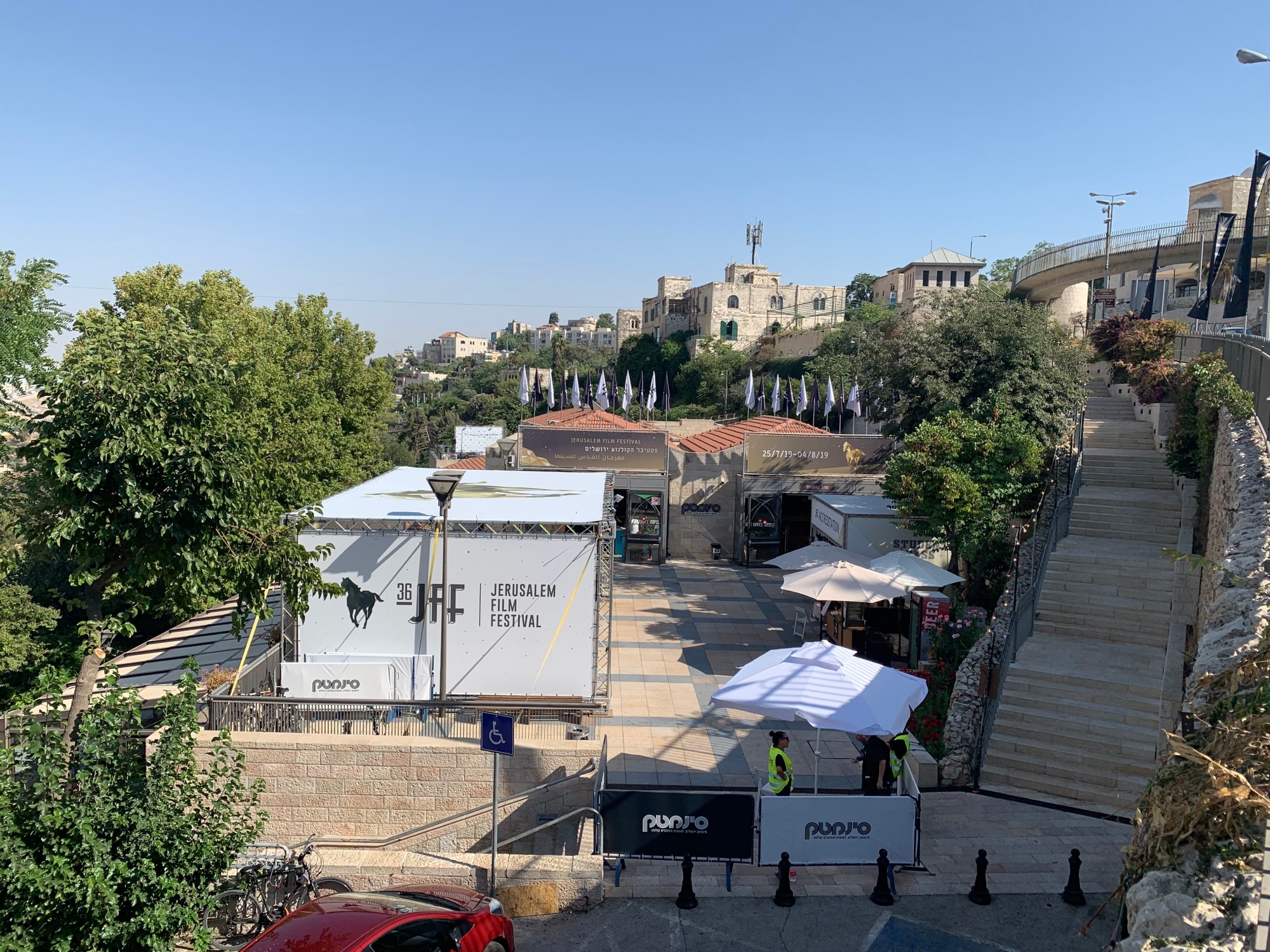
- Festivals
Jerusalem Film Festival: Cinema Across a Sacred City
For over 10 days, the Jerusalem Film Festival celebrated cinema with a program which made room for the best films coming from Cannes, Berlin, Sundance and San Sebastian. Several premieres played to full houses with some reserved for new Israeli films, which competed for the prestigious awards that are the jewel of this event.
Most of the screenings took place at the Jerusalem Cinematheque, a building facing the Hinnom Valley, just a few steps away from the Old City. Here devotees of some of the biggest world religions pray and guard revered places like the Western Wall, the Mosque of Omar and the Church of the Holy Sepulchre. The ambiance at the festival is quite different. There are halls full of film lovers, an entire sector reserved for industry meetings and a garden where moviegoers rest between screenings in the three theaters located in the complex. There are three other places where films can be seen, one in a multiplex just a few blocks from the Cinematheque, another in an upscale neighborhood nearby called German Colony and the last one, the Jerusalem Theater, closer to Downtown.
This year, Chained, the second installment in the Love Trilogy by Yaron Shani, received the Haggiag Award for Best Israeli Feature, which included 100.000 shekels (approximately U$S 28.000). Using non-professional actors, the film tells the story of a cop who needs to impose his ideas on everyone, including his wife and step-daughter. The Van Leer Award for Best Israeli Documentary went to One Hundred Percent, by Yael Kipper and Ronen Zaretsky, a portrait of a school in a Druze community in the Galilee mountains where the high school graduation rate went from 12 to 100 % in just a few years. The Van Leer Award for Best Director was for Ariel Semmel for Parano, while Eran Naim took the Best Actor Award for Chained. Naama Preis was selected as Best Actress for her fierce portrait of a classical pianist obsessed with getting her young son to follow her steps in God of the Piano.
e alThe musical Red Fields, directed by Keren Yedaya, took two awards, for Best Music and Best Cinematography, and the same happened with A Fish Tale by Emmanuelle Mayer, which took the Audience Award – Documentary and The Other Israel Award for Best Israeli Film Highlighting Minority Populations. There were also prizes for international films. Les Miserábles, the French film by Ladj Ly which won the Jury Prize at the Cannes Film Festival, added the Jerusalem Foundation Award to its increasing list of trophies, this one came with a $20.000 prize. The quality of films shown during the festival was impressive, and even if they were not awarded anything, many of them made an impact, as was the case of Light of My Life, the directorial debut by Casey Affleck, who also stars as a father that has to protect his daughter at any cost in a post-apocalyptic world where all women have died. The winner of the Golden Globe for Best Actor for Manchester by the Sea gives another amazing performance here, helped in a few scenes by Elisabeth Moss, but most of the more memorable ones feature only him and Anna Pniowsky, who plays his daughter.
Another remarkable film shown in JFF was the documentary Diego Maradona, which also premiered in Cannes, and that will be released commercially in the US on September 20th. With an impressive amount of behind the scenes and never seen material and the cooperation of Maradona himself, director Asif Kapadia (Senna, Amy) tells the story of the years the footballer spent playing for Napoli, with its highs and its lows.
Festival audiences were also able to see the winners of other prestigious events, such as Parasite from Korean veteran Joon-ho Bong, which took the Palme d’Or at Cannes, and was chosen to open JFF in an event that had Israeli president Reuben Rivlin, Jerusalem mayor Moshe Lion, local film star Lior Ashkenazi and even Dr. Ruth Westheimer in the audience. Another festival winner, the Spanish Between Two Waters, that took main prizes in both San Sebastian and Mar del Plata, was a bit out of place for the Israeli audience, as many in the theater decided to leave after realizing not much happened in this long film that again, used non-professional actors.

